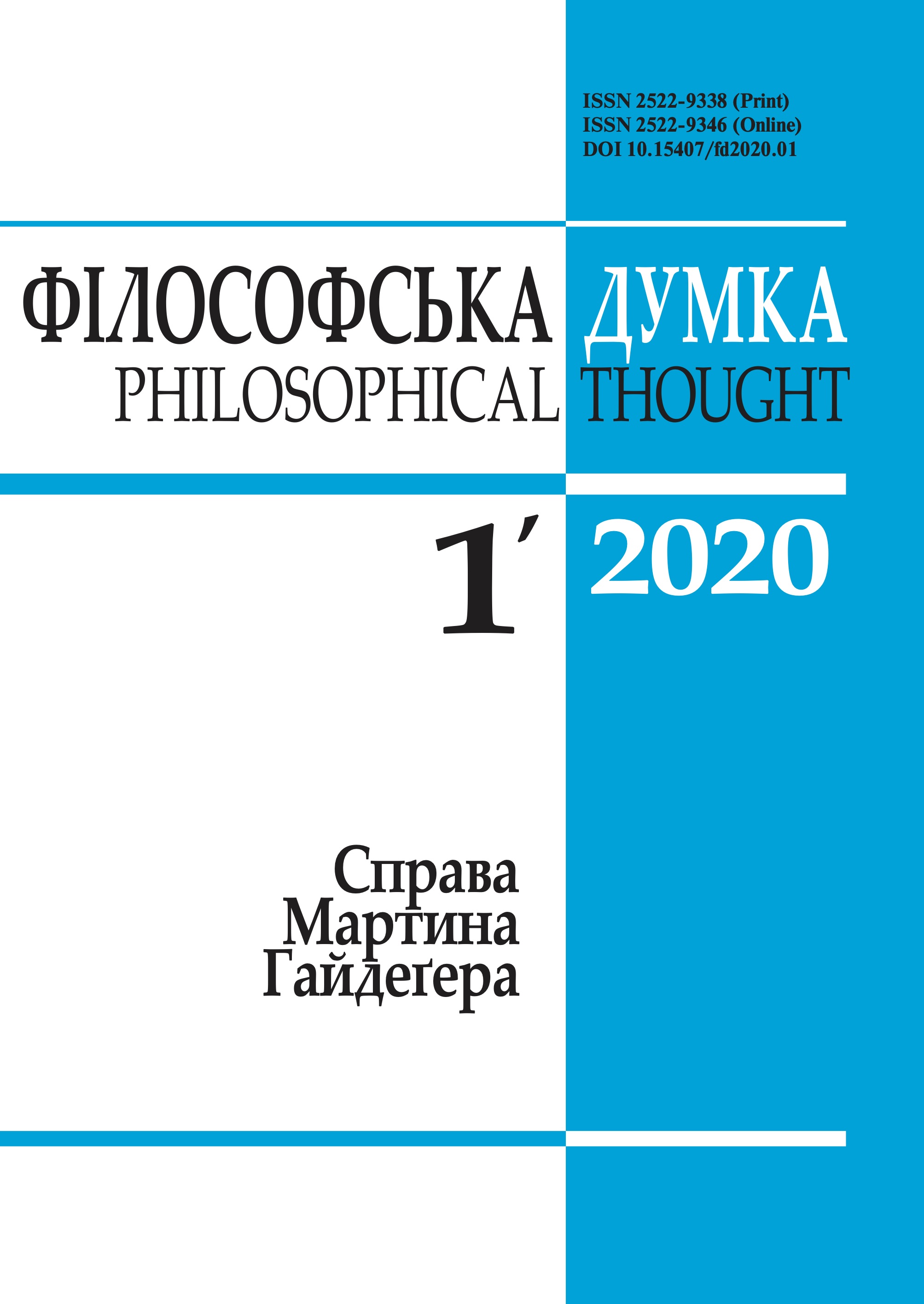Roman Kobets. Existential concept of science in Heidegger’s fundamental ontology
DOI:
https://doi.org/10.15407/fd2020.01.037Keywords:
science, scienticity, being, entity, ontology, regional ontology, ontics, subject matters, exis- tence, fundamental concepts, theoretical optics, everydayness’, present-at-hand, ready-to-handAbstract
The article explores specificities of thematization of science and scientific rationality in Martin Heidegger’s fundamental ontology. This analysis focuses on the concept of scienticity, character- istic for Heidegger’s “early” line of thought, as well as continuation and divergence of exposition of “science” and the nature of “theoretical attitude” as the subject of interpretation of transcen- dental phenomenology of E. Husserl. This research places an emphasis on particularity of Hei- degger’s explication of existential concept of science as opposed to prevailing logico-epistemolog- ical philosophy of science, and foundation of thematization of scientific “subject matters” and theoretical attitude upon the universe of ontological understanding of being of entities (regional ontologies). It also focuses on Heidegger’s assertion of fundamental ontological projection in a status of a peculiar “science of knowledge”, which gives ground for a priori pre-conditions of specific sciences. Separate attention is paid to a specifically Heideggerian approach to explication of the rooting of initial scientific orientation in the sphere of pre-scientific experience, which ar- ticulates itself in so called “fundamental concepts”, as well as positioning of contemplative ‘present-at-hand’ paradigm of theoretical knowledge as a derivative modus of a primary use of ‘ready-to-handness’ as a phenomenological founding basis of everydayness’ experience.
The author came to the attention that scientific knowledge is a project Dasein. It is within the framework of self-design that Dasein thematizes what happens to another region of being that is the subject of scientific knowledge. In other words, making things available in researching, applying themes, provided that the design allowed late as the systematic development of the most modern buildings, such as is done in the world, and possibly everyday greeting improvised performance.
References
Heidegger, M. (1970). Ph nomenologie und Theologie. Frankfurt a. M.
Heidegger, M. (1986). Sein und Zeit. In: M. Heidegger, Sein und Zeit. 16. Auflage. T binge: Max Niemeyer Verlag.
Downloads
-
PDF (Українська)
Downloads: 846
Published
How to Cite
Issue
Section
License
Authors who publish with this journal agree to the following terms:
- Authors retain copyright and grant the journal right of first publication.
- Authors are able to enter into separate, additional contractual arrangements for the non-exclusive distribution of the journal's published version of the work (e.g., post it to an institutional repository or publish it in a book), with an acknowledgement of its initial publication in this journal.
- Authors are permitted and encouraged to post their work online (e.g., in institutional repositories or on their website) prior to and during the submission process, as it can lead to productive exchanges, as well as earlier and greater citation of published work (See The Effect of Open Access).


